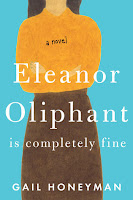This is an utterly mesmerizing story, both very harsh and violent, but very character-driven as well. Mirelle, the child of Haitian immigrants, lives in Miami with her husband and child. Her parents have moved back to their homeland of Haiti. Mirelle is visiting her parents there and heads out one morning to the beach with her husband and son when she is kidnapped and held for ransom.
She is unbelievably brutally treated (though it’s never depicted in an exploitative way, and Gay realistically depicts the many, varied reactions to rape and abuse). After thirteen days she is freed, but her troubles are far from over. She must figure out how to heal, how to forgive her family and how to move on with her life.
The beautiful thing about this book is how Gay depicts Mirelle’s internal struggle and her memories of her childhood, meeting her husband, and having her child as she is held captive. It’s beautifully interwoven and provides a respite from the grim reality of her situation. And I love a book that shows how people move on from tragedy. I also love that Mirelle is not a saint, not the most sympathetic character, as she describes herself as someone who is hard to love. And I love the complex relationship between her and her in-laws, and the very casual depiction of an interracial marriage. It even encompasses the earthquake that rocks Haiti. So beautifully done.
“The man sneered at me, called me dyaspora with the resentment those Haitians who cannot leave hold for those of us who can.” (p. 6)
“There are three Haitis--the country Americans know and the country Haitans know and the country I thought I knew.” (p. 11)
And
Gay says of herself:
“I was born in Omaha, Nebraska. I am a first generation American. My parents emigrated from Haiti quite some time ago but they instilled in my brothers and I a profound cultural identity and they’ve since returned to the island on a part time basis.”







